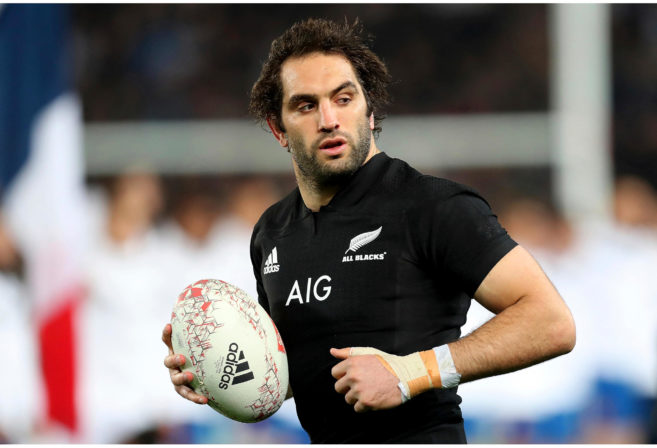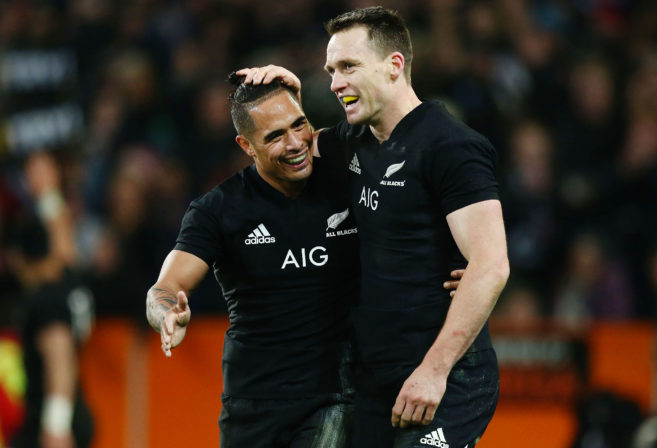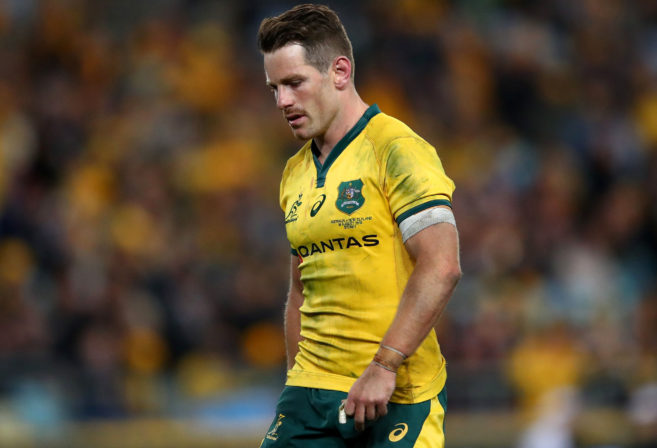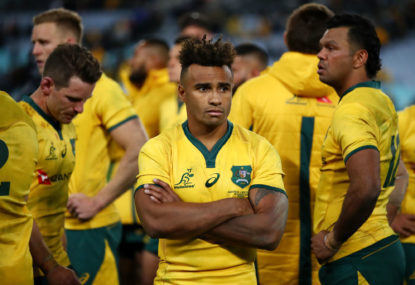Over the weekend there was cause to reflect on the champion qualities of Aretha Franklin, Sam Whitelock and the remarkable racehorse, Winx. Also on display were the aspirations of Michael Cheika’s Wallabies.
Despite the latter’s stated desire to become a champion side, that aim was cruelly exposed once again by the All Blacks as being just that – an aspiration.
The Wallabies are a good side and the margins at this level remain thinner than what many people credit. But the difference between good and great are plain for all to see, with deficiencies in personnel, experience and tactical awareness implying that a Bledisloe Cup win remains as far distant now, as it has been at any point over the last 16 years.
Earlier this year, I visited Muscle Shoals Sound Recording Studio in Sheffield, Alabama, a humble little building that was home to many of the great recordings of the 60s and 70s that became the soundtrack to a generation.
Authenticity seeped off the walls, and it was a humbling experience to take a run at ‘Wild Horses’ using the very same piano the Rolling Stones used to record the song, or to be able to close one’s eyes and imagine being in the room as the ‘Queen of Soul’, when she cut the track that would kick-start the crowning phase of her career with Atlantic Records, ‘I Never Loved A Man (The Way I Loved You)’.
Franklin died on Friday, aged 76, an icon who many have since sought to emulate, but who have all, without the purity and nuanced inflexion that her voice contains, fallen short.
Perhaps the most famous of all of Franklin’s hits is the song ‘Respect’, of which there was plenty around on Saturday night for the All Blacks’ eighth centurion, Sam Whitelock.
Skipper Keiran Read led a special moment after the match had finished, with the All Blacks’ staying on the field to present Whitelock with a silver commemorative cap to celebrate his achievement.

(AP Photo/David Rowland)
Later, having had time to shower and don his special cap, a proud and humble Whitelock exuded everything that is great about the game – not at all perturbed about man-of-the-match Brodie Retallick raining on his parade – reflecting on both his own contribution to the match and his stellar career.
Having played 100 Test matches for only eight losses, the default instinct might be to credit that unprecedented run of success to being in the right place at the right time. But understanding how professionally he approaches his rugby, it’s hard not to draw the conclusion that – from such a large sample of matches – a great deal of Whitelock and the All Blacks’ success must be due to him.
The Wallabies started well, Bernard Foley dropping the kick off on top of Rieko Ioane at the precise moment Marika Koroibete arrived to shunt him 15 metres backwards. They also took their first lineout quickly, taking nice, front-foot ball off the top – a play that stood out only because of their inability to repeat it during the rest of the match.
The All Blacks’ uncertain start was compounded when Ryan Crotty and Jack Goodhue – selected largely for their combination – took their relationship a step too far; a 12th-minute head clash forcing the incredibly unlucky Crotty into all too familiar concussion rehab.
For much of the half, the All Blacks struggled with their timing, Crotty’s injury a case in point, coming when he got himself ahead of the play from a set-piece move and fumbled a pass. Too often they found themselves being caught behind the advantage line or being harried into handling errors by a fast, committed Wallabies defensive line.
But for a side that is often comfortable playing without the ball, the All Blacks chose to retain possession, and with it they gradually found their feet and worked their way into the game.
Although it wasn’t reflected on the scoreboard, the last 15 minutes of the first half was crucial, with the Wallabies were forced to use up all their petrol tickets – the disparity in possession largely brought on by the Wallabies failings at lineout and scrum.
The All Blacks reward eventually came in the 38th minute when Ben Smith squeezed through Lukhan Tui on the short side, and a nice interchange of passes saw Aaron Smith scurry over.

(Photo by Anthony Au-Yeung/Getty Images)
The Wallabies led at the break, but their single-point margin merely represented the knives being sharpened. With further set-piece implosion to follow, it was no surprise to see the All Blacks run away with things in the second stanza.
The Wallabies’ scrum and lineout concerns can be partly addressed this week, with the return of Taniela Tupou. But seven lost throws is unheard of at this level, and the All Blacks will no doubt be keen to keep competing at the jump and pile more pressure on both Wallabies hookers and their caller, Adam Coleman.
Retallick was supreme in his return to top-level rugby, while Goodhue, a young man at the start of his career, continues to impress with each step up. He shared a nice moment at the end of the game, as the players came together to shake hands, joking with and apologizing to Ryan Crotty for prematurely ending his match.
Sam Cane and Aaron Smith were others to enjoy strong matches, Smith’s bullets fired consistently a half-yard in front of Beauden Barrett, providing a wonderful platform to work off.
By contrast, the Wallabies had few winners on the night. By match end, all looked spent forces – even the replacements – although David Pocock fought manfully, and Bernard Foley bravely shut down a couple of try-scoring situations.
As for the frustration of Wallabies fans seduced by, then let down by yet another false dawn? On Saturday at Randwick, champion mare Winx recorded her 26th straight win, steamrolling her opposition down the middle of the track. The ten opponents left in her wake were no pit ponies, rather they represented millions of dollars worth of precisely bred racehorse.
Unfortunately for their owners, they have the misfortune of owning a horse in the same generation as Winx, and no matter the quality of their own charges, for them, Group 1 success will have to wait until after Winx retires, or they develop a new champion from within their juvenile ranks.
And so it is for the Wallabies. There are quality, world-class players like David Pocock, Will Genia and Israel Folau, bolstered by emerging talent like Taniela Tupou, Lukhan Tui and others. It is a strong hand but, in the context of this current All Blacks’ side, not strong enough.

(Photo by Cameron Spencer/Getty Images)
There is no quick fix. A shuffle of deckchairs here and there to keep some fans happy – Jake Gordon for Nick Phipps, Rory Arnold for Izack Rodda or anybody for Foley – would only represent provincially motivated straw-clutching.
Instead, it would appear that until Australian rugby as a whole – not just the Wallabies – transforms itself into a cohesive, ‘all on the same page’ concern, or New Zealand rugby unexpectedly implodes, there is unlikely to be anything but sporadic trans-Tasman success.
So it is that the Wallabies are on their way to their 16th successive failed Bledisloe Cup campaign. Winx’s opponents have drawn 26 such blanks, but such is the nature of racing that you will never hear a racing fan claim that the horses that run in vain against Winx are ’embarrassing’, or ‘don’t care’ or are ‘pathetic’.
There’s a popular view that says the health of rugby is threatened by the All Blacks’ continuing dominance. Racing people are aspirational – instead of turning their back on the sport when a champion emerges from the pack, engagement with the sport actually increases. More owners want one for themselves, and fans flock to see the champ in action.
Rugby differs in that the fan engagement tends to occur more at a nationalistic, tribal level. The trainer of Winx, Chris Waller, is a New Zealander, but his nationality doesn’t prevent Australian horse lovers fawning over his mare, like it would if he were, say, Steve Hansen, in charge of the All Blacks.
Perhaps it’s an easy thing for someone who wasn’t born into a green and gold rugby family to say, but there’s something to be said for parking frustration with the Wallabies and sitting back and enjoying the ride.
The All Blacks don’t get everything right every time, but the speed at which the ball is moved and defensive intensity is applied, the way composure is maintained, even when things aren’t quite gelling, are qualities worth admiring. And emulating.
[latest_videos_strip category=”rugby” name=”Rugby”]
For all of the Wallabies’ earnestness and incremental improvements, unless there is another swathe of players lurking, hitherto undiscovered, that provides world-class depth across all positions, Bledisloe Cup dominance doesn’t look like ending any time soon.
It was a similar result in the women’s international, won 31-11 by the Black Ferns, in front of an encouraging crowd that had swelled to over 28,000 by the latter stages of the match.
The result continued the dominance held by New Zealand over the Wallaroos, but rather than offer a direct comparison to the men, this result more reflects the different stages of development of the two sides – the Black Ferns well advanced on Australia’s fledgling XVs program.
There is talent on both sides – both halfbacks, Kendra Cocksedge and Cobie-Jean Morgan, are clearly avid devotees of Aaron Smith, passing impressively from the base, and the New Zealand lineout maul was as efficient and well organised as any seen in Super Rugby this year.
What these girls need more than anything is more rugby – look to administrators on both sides of the Tasman to look to provide this, and in doing so, watch for the gap between the sides to narrow.
In Durban, South Africa pulled away from a gallant Argentina to start their Rugby Championship with a 34-21 win. As in Sydney, there was plenty of endeavour and ball movement – not all of it accurate from the Springboks – that allowed the Pumas to stay in the game for longer than they might have expected.
What both matches showed, however, is that the premise that rugby lacks entertainment value is largely false. Current laws, their application and the attitudes of most teams, ensure that attractive rugby and ball-in-play times are rising, without the need for tinkering or artificial devices.
It might be of no solace for Wallabies fans staring down another trip to the Eden Park graveyard this week, but the game, for the most part, is actually in pretty good health.
































































































